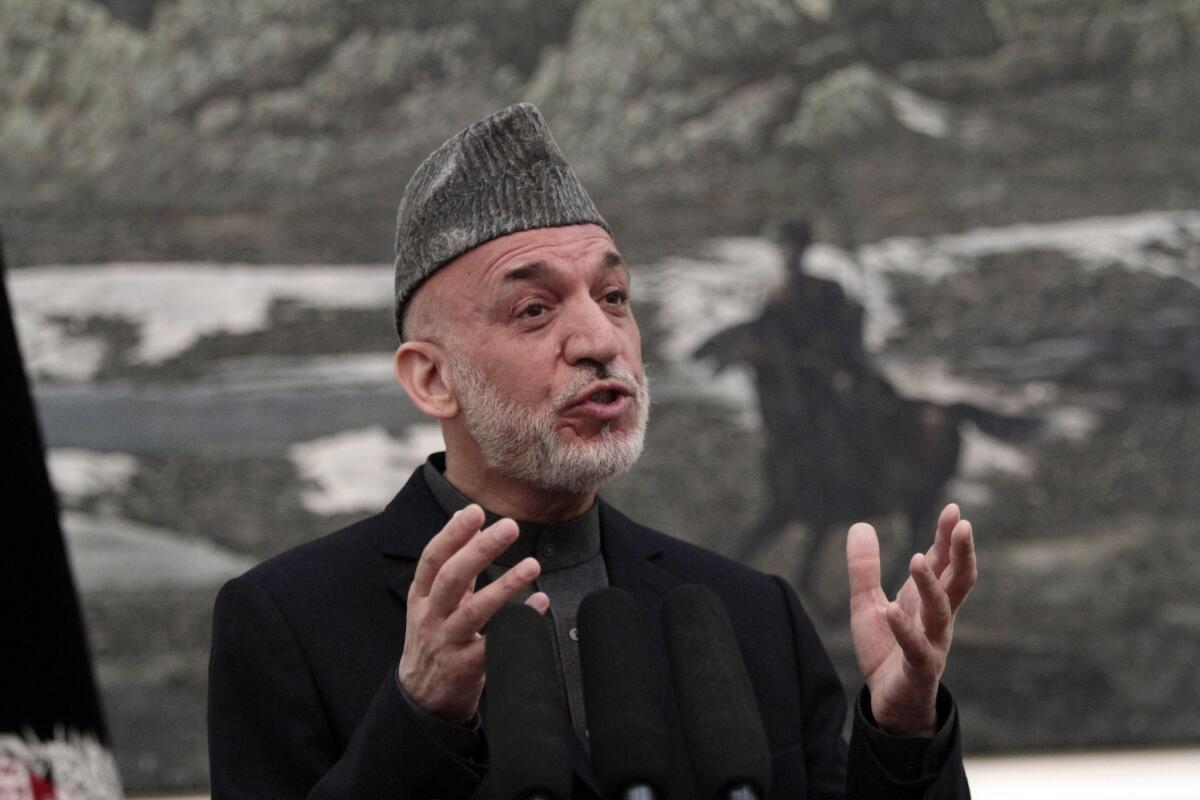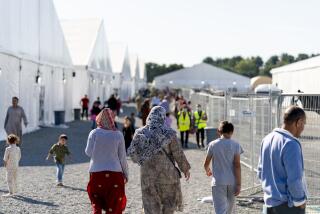Choosing sides in Afghanistan

Hamid Karzai has been president of Afghanistan for a long time â since the end of 2001, when he was installed by a U.S.-led alliance. At the time, he seemed a charming, English-speaking leader with a colorful wardrobe who could craft a democratic, post-Taliban state.
Today Karzai is perceived, at least in the West, as erratic and unpredictable, an opportunist who has troubling ties to corrupt officials and abusive warlords. Far from consolidating democracy, Karzai has presided over the development of a deeply corrupt and abusive state that has allowed the resurgence of the Taliban. He is no George Washington. He is not even a Ramon Magsaysay or an Alvaro Uribe. (Magsaysay was the Philippine leader in the 1950s who defeated the Huk rebellion; Uribe is the Colombian leader who in the last decade inflicted severe setbacks on the FARC insurgency.)
Unless Afghanistan can find a more capable successor to Karzai, it is hard to imagine the country being able to consolidate the hard-won security gains made since 2009 by American troops. The future of Afghanistan may turn on the outcome of the April 2014 presidential election â assuming it is held.
There is widespread suspicion in Afghanistan, which I visited in early May, that Karzai, desperate to hold on to power, may postpone the election indefinitely on the grounds that the nation is too violent and chaotic for âfree and fairâ voting. This the United States should not allow. President Obama should make it clear that our continuing aid is contingent on the term-limited Karzai leaving office.
But assuming the election goes off on schedule, what role should the U.S. play? In Washington, the conventional wisdom is that our involvement should be limited to helping Afghan authorities secure the physical integrity of the balloting process. All the U.S. wants is a free and fair election, administration spokesmen repeatedly claim.
Very commendable, but is it realistic? The last election, in 2009, was marred by widespread fraud and ballot-stuffing orchestrated by Karzai and his allies. There is no reason to think that the 2014 election will be any different, considering that by then the U.S. military presence will be reduced from todayâs level of 66,000 troops to just 34,000, and those troops will be acting as advisors, not polling station guards. Afghans will have to carry out the election largely on their own.
Alas, the Kabul governmentâs track record does not inspire much faith, especially since Karzai has made it plain he will not tolerate any foreigners on the Electoral Complaints Commission, a crucial watchdog organization that in the past was made up of Afghan and non-Afghan members.
At the very least, if he allows the election to take place, it appears Karzai will try to orchestrate the inauguration of a handpicked successor, possibly his brother Abdul Qayum Karzai, who could keep the existing political clique in place and allow Karzai to exercise power from behind the scenes. That would be a disaster for Afghanistan, and for American interests in the region.
Neutrality in a foreign countryâs political process is a nice ideal, but it is impossible in Afghanistan. If we stay on the current course, maintaining a hands-off position, we will in effect ratify a continuation of Karzaiâs baleful influence. The public revelation that the CIA has been providing him with bags of cash doesnât help.
A better alternative would be to embrace a more politically activist role. The U.S. ambassador, CIA station chief and U.S. military commander in Kabul, acting in close concert with officials in Washington, should pick a favorite among the many candidates maneuvering to succeed Karzai â the best (or, more likely, least bad) leader for Afghanistanâs future. The U.S. could then use its influence, including those notorious bags of CIA cash, to do what it can to secure the election of whichever candidate is judged most likely to be a strong, unifying leader who will take on both the Taliban and corrupt government officials.
There are obvious objections to such a course. First, we donât have a good track record of picking Afghan candidates â after all, Karzai was our pick in 2001. Second, ham-handed attempts by then-Ambassador to Afghanistan Karl W. Eikenberry and the late special envoy Richard C. Holbrooke in 2009 to promote alternatives to Karzai backfired; Karzai still won and became harder than ever to deal with.
Thatâs all true, but we need not be paralyzed by past mistakes. In 2001, U.S. officials knew little of the Afghan political landscape. We have had a dozen years since then to learn the lay of the land, which, one hopes, would allow us to make a better choice this time around.
The problem in 2009 was not that the U.S. backed a competitor to Karzai, it was that the effort was diffident and ineffective. This time around we would have to do a better job. And we need not be deterred by the possibility that our machinations would be exposed â among most Afghans, American support is seen as a good thing. Thatâs why Karzai has not denied getting CIA cash.
If we fail to act, we will be leaving the decision not to the Afghan people but to Karzai, warlords and a host of corrupt officials.
Max Boot is a contributing editor to Opinion, a fellow in national security studies at the Council on Foreign Relations and the author of âInvisible Armies: An Epic History of Guerrilla Warfare from Ancient Times to the Present.â
More to Read
A cure for the common opinion
Get thought-provoking perspectives with our weekly newsletter.
You may occasionally receive promotional content from the Los Angeles Times.










